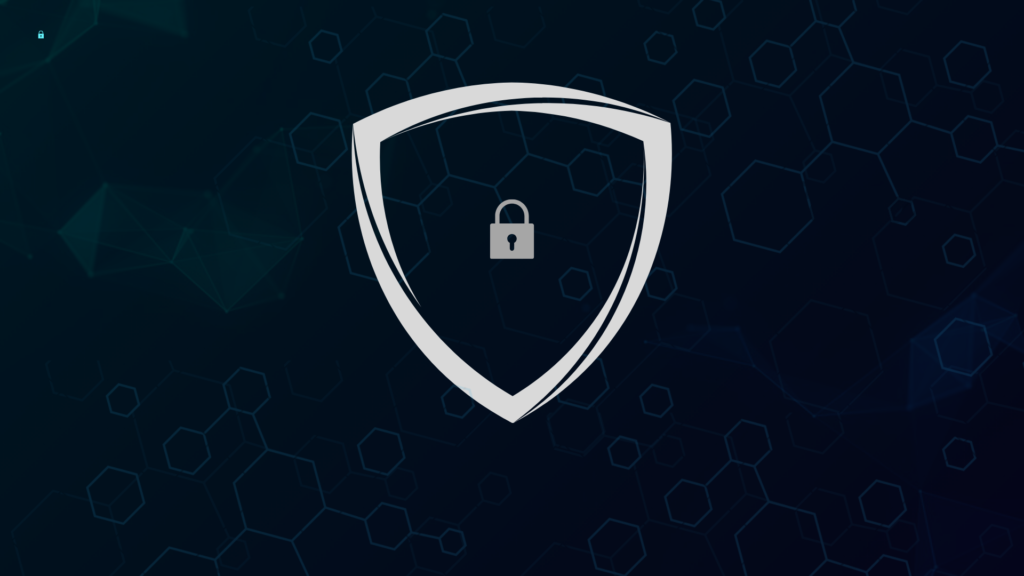In the past few decades, the global interconnection of systems, industries, and economies has accelerated the world at an unprecedented pace. Technological advancements in fields such as machine learning, cloud computing, and cybersecurity are advancing rapidly, influencing how businesses operate, governments function, and individuals engage with the world. These technological shifts have brought about significant opportunities for growth, efficiency and innovation but have also enabled underdeveloped countries to participate more actively in the global digital economy. As a result, nations that were once on the periphery of technological development now have the potential to leapfrog traditional economic and industrial stages, harnessing digital tools to drive growth and improve living standards.
However, alongside these opportunities, new challenges have come along—particularly in terms of security risks and the broader economic implications of an increasingly digital world. As organizations, governments, and individuals become more dependent on digital infrastructures, the vulnerabilities of these systems—especially related to cybersecurity—are becoming more apparent. The integration of automated systems and AI into critical sectors like finance, healthcare, and public administration has raised important questions about data privacy, ethical governance, and the reliability of technological solutions.
As nations and industries embrace these tools, they must also contend with unintended consequences, such as the economic displacement of workers due to automation and the vulnerabilities exposed by the interconnectedness of digital networks. Given these complexities, this ongoing technological transformation must not be viewed as a series of isolated innovations. It is part of a larger, interconnected global ecosystem that requires a sophisticated understanding of both its potential and its risks.
The Impact of Emerging Technologies on Global Cybercrime
As digital systems become more interconnected, the boundaries between innovation and vulnerability blur, creating a double-edged sword for both individuals and nations. While the benefits of technological progress are undeniable, the dark side of this progress manifests in cybercrime, intellectual property theft, data breaches, and state-sponsored cyberattacks that threaten national security and economic stability.
The digital technologies growth provided ample opportunities for malicious actors to exploit vulnerabilities in digital systems. Cybercriminals use a variety of tactics, from ransomware attacks to data breaches, to compromise sensitive information and extort both individuals and organizations.
One of the most alarming aspects of modern cybercrime is its global nature. Unlike traditional forms of crime, which are bound by geographical borders, cybercrimes can be perpetrated from anywhere in the world, often making it difficult for authorities to track, apprehend, and prosecute offenders. This is particularly true for state-sponsored cyberattacks, where governments may turn a blind eye to the activities of hackers operating within their borders.
The Role of Nation-States in Cybercrime
Nation-states have become increasingly involved in cybercrime, not just as victims, but as perpetrators. In recent years, the rise of state-sponsored cyberattacks has drawn significant global attention. These attacks are typically politically motivated, aimed at disrupting or destabilizing other nations’ economies, infrastructure, or national security. Prominent examples of such attacks include the Stuxnet worm, attributed to the U.S. and Israel, which targeted Iran’s nuclear program, and the previously mentioned SolarWinds hack, which was linked to Russian state-sponsored hackers.
However, China has also been a significant actor in the global cybercrime controversy. Reports by organizations like FireEye and CrowdStrike have highlighted Chinese cyber espionage campaigns aimed at stealing intellectual property, trade secrets, and sensitive data from global corporations, especially in sectors like technology, pharmaceuticals, and defense. The APT10 group, attributed to China, has been involved in large-scale cyber espionage activities targeting companies across the United States, Europe, and Asia.
In many of these cases, the hackers operate with relative impunity because their actions are often sanctioned or overlooked by the governments in which they reside. This creates a significant challenge for international law enforcement, which has limited authority to pursue cybercriminals beyond their national boundaries.
The Case of the SolarWinds Hack and International Implications
The 2020 SolarWinds cyberattack serves as a great example of how technological advancements can create unintended vulnerabilities. The attack, attributed to the Russian hacking group APT29, infiltrated SolarWinds’ Orion software, which is used by thousands of organizations worldwide. The hackers gained access to critical government agencies, technology firms, and other industries, exfiltrating sensitive data and compromising the integrity of digital infrastructures.
While the SolarWinds attack was linked to Russia, it highlighted the broader issue of how interconnected global digital systems can be exploited by malicious actors, including state-sponsored hackers. The attack also demonstrated how difficult it is to hold perpetrators accountable, especially when they operate within countries that do not cooperate with international law enforcement efforts. In this case, the perpetrators were believed to have been operating out of Russia, where the government has often been accused of turning a blind eye to cybercriminal activities that align with national interests.
A Continuing Trend China and Cyber Espionage
China, over the past decade, has become a central figure in the global cyber espionage cases. Chinese hackers are believed to be behind numerous high-profile cyberattacks aimed at stealing intellectual property and trade secrets from foreign companies. These actions have been particularly focused on sectors crucial to China’s economic and technological growth, including technology, aerospace, and pharmaceuticals. The APT1 group, allegedly linked to the Chinese government, is known for its extensive cyber espionage campaigns targeting over 140 organizations worldwide.
This is not a new trend. In fact, the Chinese government has been accused of endorsing or facilitating cyber espionage for years. The 2007 cyberattacks on Google, known as Operation Aurora, are among the earliest examples of such activities, where Chinese hackers infiltrated the company’s systems to steal intellectual property and access sensitive information about human rights activists. Despite these incidents, international law enforcement has struggled to enforce accountability, as the Chinese government has consistently denied involvement and refused to cooperate with foreign investigations.
Moreover, the Great Cannon cyberattack in 2015, allegedly orchestrated by the Chinese government, targeted websites critical of the Chinese government by flooding them with massive amounts of traffic. This attack was seen as a form of digital censorship and was widely condemned by international organizations but went largely unpunished due to the difficulties of prosecuting actors within China’s borders.
The Regulatory Response and Challenges in Enforcement
One of the most significant challenges in addressing international cybercrime is the absence of a unified global framework for cybersecurity and enforcement. While organizations like the United Nations and the European Union have developed frameworks for cybersecurity cooperation, the enforcement of cybercrime laws remains largely fragmented. National sovereignty, jurisdictional issues, and a lack of cooperation between international law enforcement agencies have made it difficult to hold cybercriminals accountable.
The Interpol and Europol have worked to coordinate global responses to cybercrime, but they face substantial challenges due to differences in national laws and regulations. For example, a country like China may not honor international arrest warrants or cooperate with investigations, leaving cybercriminals operating within its borders with little fear of prosecution.
Moreover, the rapid pace of technological innovation has outstripped the development of laws and regulations that can adequately address new forms of cybercrime. As digital systems evolve, so too do the tactics of cybercriminals, who are quick to exploit vulnerabilities in emerging technologies. This creates an ongoing cat-and-mouse game between cybercriminals and cybersecurity experts, where new threats emerge faster than they can be mitigated.
The Role of Emerging Technologies in Economic Development
The transformative potential of innovations such as Artificial Intelligence (AI), blockchain, and the Internet of Things (IoT) is becoming the central to global economy growth.
According to a 2021 report by the World Economic Forum, the digital economy is projected to reach $23 trillion by 2025, with countries like India, China, and Brazil leading the charge in technological innovation.
These nations are leveraging emerging technologies to leapfrog traditional development stages, driving economic growth, job creation, and enhanced living standards.
For instance, in sub-Saharan Africa, mobile banking platforms like M-Pesa have empowered millions to access financial services, transforming the region’s economy. Similarly, AI-driven education technologies in Southeast Asia are helping advancing education accessibility, providing millions with affordable learning opportunities. These emerging technologies demonstrate their potential as essential tools for economic development, particularly in regions that have historically been underserved or excluded from traditional economic systems.
However, the integration of these technologies also brings significant challenges. The digital divide remains a pressing issue, with many countries lacking the necessary infrastructure to fully harness the potential of new technologies. The International Telecommunication Union (ITU) estimates that improving ICT infrastructure in developing regions could add $2 trillion to the global economy by 2030. Yet, for this to become a reality, governments and organizations must invest in digital infrastructure, education, and skills development to ensure that emerging technologies reach their full potential.
The Global Workforce’s Response to AI Advancement
According to the World Economic Forum (2020), an estimated 1 billion jobs will be significantly transformed by technology by 2030, with many roles being displaced while others evolve.
The advancement of AI alone has already begun to alter the workforce, especially in developed economies where digital infrastructure is more readily available. In sectors like manufacturing, transportation, and customer service, automation is replacing low-skill jobs, while creating new opportunities for skilled professionals in technology, data analytics, and cybersecurity.
However, the impact is not limited to developed countries. Emerging economies, especially in regions like Southeast Asia and Latin America, are also seeing an explosion in tech startups and mobile-first solutions. This digital transformation presents both challenges and opportunities for the global workforce. Workers in these regions face the challenge of acquiring new skills to remain competitive, while also embracing the opportunities that these technologies offer for entrepreneurship and innovation.
The skills gap remains one of the most pressing issues in today’s workforce. In both developed and developing countries, access to technology is improving, but the ability to harness its potential requires significant investment in education, training, and development. According to McKinsey, 87% of employers report difficulties in finding candidates with the necessary skills for emerging roles, highlighting the urgent need for upskilling initiatives.
Embracing Ethical Responsibility
The need for upskilling and reskilling the global workforce has never been more critical. While many jobs are being displaced by automation, new roles are emerging that require advanced technical skills, including expertise in AI, cloud computing, and cybersecurity. According to the World Economic Forum, by 2025, 50% of all employees will need reskilling, with a strong focus on technological fluency and adaptability. Issues like data privacy, algorithmic bias, and the digital divide require careful consideration as we navigate this technological transformation. The global workforce must not only be skilled in the technical aspects of these technologies but also in the ethical implications of their use. This includes understanding how to build fair, transparent, and accountable systems that protect user privacy and ensure equal access for all.
Organizations must prioritize ethical responsibility in technology, especially considering the diverse workforce that is emerging globally. Women, minorities, and underrepresented groups must be included in the conversation to ensure that technology is developed and implemented in a way that benefits everyone, not just a select few. The International Women’s Forum (IWF) advocates for the inclusion of women in the tech workforce, citing that diversity is crucial to ensuring that technology addresses the needs of all people, not just the privileged few.
Governments, educational institutions, and corporations must work together to develop accessible and inclusive upskilling programs that prepare workers for the jobs of tomorrow. This includes investing in digital literacy, providing access to affordable training programs, and building an environment where lifelong learning is the norm.





kjnn